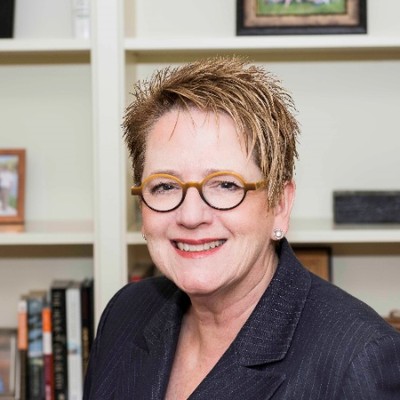In a new series, Meaningful Work, we examine how government service is great for those attorneys who are driven by purposeful work and career happiness
Pat Bak, who recently retired as the Deputy Executive Director at the Federal Trade Commission (FTC), had a storied career as a lawyer in government service across multiple federal agencies. From the Federal Deposit Insurance Corp. (FDIC) through multiple roles at the FTC with a stint as an in-house counsel in between, Bak says she found all of her roles illuminating and meaningful.
“At each point of my career, I was motivated by different things, but the common theme was there was an inflection point of things that were going on in the outside,” Bak explains. Indeed, she worked for a member of Congress who sat on the House Judiciary Committee during Watergate even before going to law school. And after law school, Bak sought out employment at the Federal Election Commission, an agency created in the aftermath of the Watergate crisis.
After 10 years as an attorney in private practice handling large class action antitrust claims, she returned to government service at the FDIC in the middle of the 1980s Savings & Loan crisis. After that, she went in-house running a legal department for a large court-created class action trust, and because of her work in large class-action litigation, she was recruited back to public service as a lawyer at FTC’s Bureau of Consumer Protection, which was then launching a class action project.
Later, based on her prior management of an in-house legal department, FTC management tapped Bak to help manage the agency over the last decade of her career, allowing her to flex her business and employee development skills, which was something she had enjoyed while working in-house.

Each time Bak transitioned from the private sector to government service, there was a new frontier in which to work. “With chaos comes freedom,” she says, adding that what she most enjoyed about the public sector was the opportunity to be on the front lines of something impactful. “Working at a government agency gave me the freedom to explore whatever I was interested in, and having worked in law firms for 10 years, you don’t get that freedom,” Bak observes.
FTC’s focus on mission & career growth
Because the purpose of the FTC is to preserve competition and protect consumers, it is hard to argue that the public service that the agency is providing is not meaningful. To that end, the agency has gone to great lengths to ensure its mission and career growth were front and center for its employees:
Aligning all employees, including support, staff to the mission — Among the program changes Bak implemented was broadening on-boarding training for new employees to include support staff. (Previously, this training had only been done for new lawyers.) She also made sure that the team in charge of planning and executing the two-day training program was led by FTC’s Honors Paralegals, which gave the elite group developmental opportunities around collaboration, budgeting, public speaking, and networking with the most senior agency executives. “It is hard to do support work and to really understand your work in the absence of understanding the mission,” Bak says, adding that this change was also an important component of the agency’s commitment to diversity, equity & inclusion since many of the support staff were employees of color.
Leave the FTC and come back — Bak advises other FTC lawyers to follow her example by transitioning to and from the private sector, for two primary reasons: i) their experience in the private sector will bring a different perspective when they return to the FTC; and ii) to earn private sector compensation. “We’ve ingrained the idea that at some point you should leave to go to that law firm to do something else, and then, come back to us to lead in some capacity,” she explains.
Staying in touch with alumni — Because government agencies are not able to compete on pay, Bak is a big advocate for government agencies staying in touch with alumni to bolster their ongoing relationship with the agency. “People have longstanding relationships with the FTC long after they’ve left,” she adds. “And, the agency does have this continued revolving relationship with alumni.”
Explore internal opportunities — To increase retention of attorneys in public service, Bak helped to carry the legacy of exploration and freedom at the FTC during a time called “open season,” where lawyers have the option of moving around to other divisions to maintain their thirst for learning and alleviate any feelings of stagnation in their careers.
If Bak had a magic wand to increase retention, she says she would use it to reduce the gap in pay between lawyers working in government and those in private practice. In addition, she would eliminate the practice of unpaid internships.
To make long-term investments in recruiting, Bak advocated for FTC economists to tutor in Washington, D.C.-area public schools to open up career possibilities for younger students. “I would love these kids to be encouraged to be in significant roles where they are taking good heavy math and they’re exposed to jobs where they see people having a good life and doing work that’s appealing,” Bak notes. “My feeling was, if I can’t get them to come to me, we should go to them.”







